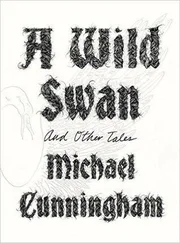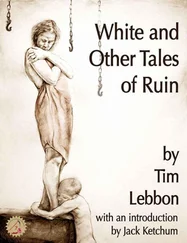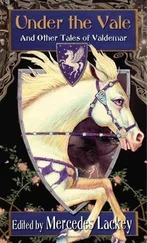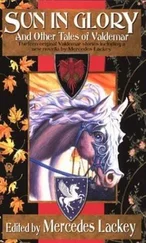William Kingston - Foxholme Hall, and Other Tales
Здесь есть возможность читать онлайн «William Kingston - Foxholme Hall, and Other Tales» — ознакомительный отрывок электронной книги совершенно бесплатно, а после прочтения отрывка купить полную версию. В некоторых случаях можно слушать аудио, скачать через торрент в формате fb2 и присутствует краткое содержание. Жанр: foreign_prose, foreign_children, на английском языке. Описание произведения, (предисловие) а так же отзывы посетителей доступны на портале библиотеки ЛибКат.
- Название:Foxholme Hall, and Other Tales
- Автор:
- Жанр:
- Год:неизвестен
- ISBN:нет данных
- Рейтинг книги:3 / 5. Голосов: 1
-
Избранное:Добавить в избранное
- Отзывы:
-
Ваша оценка:
- 60
- 1
- 2
- 3
- 4
- 5
Foxholme Hall, and Other Tales: краткое содержание, описание и аннотация
Предлагаем к чтению аннотацию, описание, краткое содержание или предисловие (зависит от того, что написал сам автор книги «Foxholme Hall, and Other Tales»). Если вы не нашли необходимую информацию о книге — напишите в комментариях, мы постараемся отыскать её.
Foxholme Hall, and Other Tales — читать онлайн ознакомительный отрывок
Ниже представлен текст книги, разбитый по страницам. Система сохранения места последней прочитанной страницы, позволяет с удобством читать онлайн бесплатно книгу «Foxholme Hall, and Other Tales», без необходимости каждый раз заново искать на чём Вы остановились. Поставьте закладку, и сможете в любой момент перейти на страницу, на которой закончили чтение.
Интервал:
Закладка:
“You have acted bravely, my son, and you deem the damsel fair to look on?” said Father Mathew.
The last words were uttered quite in an indifferent tone, as if the matter were of very little consequence.
“Oh yes; the damsel is perfectly beautiful,” exclaimed the youth, enthusiastically. “I have never seen one I could so devotedly love and adore.”
The priest gave way to a low laugh, and remarked:
“Perchance the next time you see her she may not appear so charming, and still less so the following. Methinks, too, that she is not such a one as the young lord of Beauville ought to wed.”
“I have heard of noble knights wedding with maidens of low degree, whose beauty and rare excellence made them fit to take their place among the highest in the land. Such is the damsel of whom I speak. It would be a grievous pity to let so charming a rose bloom unseen, or to allow her to mate with some rough thistle or thorn unworthy of her.”
The priest laughed outright.
“Certes, the charms of the damsel have made you poetical, my esteemed pupil,” he remarked. “I must go forth to see this rare piece of perfection. I wonder whether I shall esteem her as you do.”
Now, although Herbert had a great regard for his reverend tutor, he did not altogether desire to have him become acquainted with the damsel, and he at once, therefore, began to repent that he had praised her in such glowing terms. He scorned, however, to retract anything that he had said, yet he determined to try and prevent Father Mathew from visiting Donington Farm till he had secured, as he hoped to do, the affections of its fair inmate. It was not till late at night that the priest and his pupil retired to their beds. At an early hour the next morning the young lord of Beauville was on his way to Donington to inquire if Mistress Gertrude had recovered from the effects of the fright to which she had been subjected. He also persuaded himself that he was anxious to learn how it fared with sturdy Rolfe.
He went well armed in case he should meet any of the band of robbers whose comrades he had so roughly handled. On reaching Donington, he saw Father Mathew’s grey mare at the gate. The father must have left the castle by break of day, and have ridden pretty fast to get there before him. Herbert met him coming out.
“Ah, my son, you said not that you were coming here to-day,” he remarked quietly. “However, I am not surprised. The damsel is truly fair to look on, and calculated to win a young man’s heart. But beware, I say – beware. Now go in and pay your visit and inquire after her health, and say all the foolish things you proposed saying, and then come out again. I will wait for you, and we will ride back to Beauville together.”
This was not at all according to Herbert’s intentions, yet he could not help himself without positively refusing to comply with the father’s wishes. He found the dame and her fair daughter within. There was some constraint in their manner at first, but the latter was evidently pleased to see him. He thought her not less lovely than on the previous evening. The visit, however, was not such as he had anticipated. In vain he tried to learn what Father Mathew had been saying about him. At last he was obliged to take his leave and join the latter, who had been walking his horse up and down, waiting for him. The young man had learned wisdom.
“I will be even with him,” he thought to himself. “I will let him suppose that he is right, and that on a second visit I have not found the damsel as charming as I at first described her.”
He carried out his plan, but whether or not Father Mathew was deceived he could not tell; for the wary priest made no reply to his remarks by which he could judge what was passing in his mind. When Roger returned, Herbert took good care to say nothing to him about fair Mistress Gertrude, and, somewhat to his surprise, Father Mathew was equally reserved on the subject.
It was curious, however, that from that time forward his hounds or his hawks always led him in the direction of Donington, and, though he brought home less game than formerly, he never grumbled at his ill-luck. Perhaps both Roger and Father Mathew were watching him, but, if so, he was not aware of it, and was perfectly well satisfied with the course he was taking. He found that Mistress Gertrude was not over strictly brought up, and that her parents did not object to her mixing with other young people, and enjoying the spoils and pastimes suitable to their age. At all festivals and merry-makings Herbert became her constant attendant. He cared not if any one remarked that he demeaned himself by associating as he did with a yeoman’s family. Master Alwyn did not object to his consorting with his daughter, and therefore no one else had any business to find fault with him. He engaged warmly with other young men of his age in the various athletic sports then generally practised. It was his delight to excel in them, and whenever he won a prize, as he often did, he was wont to bring it and place it at the feet of the fair Gertrude. He did so with a right noble air, and it was often remarked that she received these attentions with a grace which not the first lady in the land could surpass. He was not without rivals who desired to gain the chief place in her affections; not that she gave them any encouragement, for her heart was already entirely surrendered to Herbert.
Among the many devices employed by that money-loving monarch, Henry the Seventh, was that of confiscating the property of any of his nobles or other wealthy persons who gave him cause of offence by rebelling or intriguing with his enemies. Not far off resided a certain Master John Fisher, once a wealthy merchant in London, who had in an evil hour for himself purchased one of these estates, lately belonging to a Lord Nevile, of ancient lineage, much beloved in the country. Master Fisher was a worthy honest man, and would have proved a greater benefactor to the people among whom he came to reside than he had afterwards the power of being, had not the king looked on his hordes as a mine of wealth from which it was his royal privilege to extract whatever he might require. The merchant had several sons, who naturally desired to live like the young lords and gentlemen around them. One of them, Thomas Fisher, had set his eyes on Mistress Gertrude. He had more fortune than his brothers, money having been bequeathed to him by an uncle, also a merchant. His personal appearance was in his favour, and, altogether, he might have been considered a very good match for the yeoman’s daughter. Master Fisher, his father, however, did not approve of it, and desired that he should wed into some noble family, which would give him a better standing in the country than he could otherwise obtain. Thomas, however, was of an obstinate disposition, and would by no means give her up. Wherever there was a prospect of meeting her there he was always to be found, though he had to confess that of late she certainly had given him very little encouragement.
There was in the neighbourhood of Beauville Castle a large open common, in the centre of which were certain Druidical remains – huge blocks of stone, some like pillars standing upright, and others placed on a pivot over another by means the knowledge of which appears afterwards to have been lost. One of these stones, the largest in the group, was so placed that the slightest touch would set it vibrating. It was generally believed, however, that this could only be done by the good and virtuous, and that any one not deserving that character, though they might shake it ever so violently, could not move it. Here, from near and far, it had been the custom of the youths and lasses to assemble on festivals and holidays to amuse themselves with the games and sports then in vogue. Archers came to exhibit their skill. Quintains were set up, at which young men delighted to run, with lance in rest, either on foot or on horseback. Here were practised hurling the bar, casting the lance, running races, and other similar active sports; while on May-day a pole was set up, round which the morris-dancers assembled, and the Lord of Misrule held his court. People of position in the county did not disdain to come to these merry meetings. One fine afternoon, on the 1st of May, 1493, a large number of persons of all ranks and ages were assembled in the neighbourhood – of the rocking-stone. The still wealthy merchant, Master Fisher, and the yeoman, Master Alwyn, and Herbert’s faithful guardian, Roger Bertram, and several knights and justices with their families, and Father Mathew, and other priests and curates, and not a few monks and friars, who had come with the spirit of pickpockets of the present day to try what they could filch from the pouches of the merry-makers.
Читать дальшеИнтервал:
Закладка:
Похожие книги на «Foxholme Hall, and Other Tales»
Представляем Вашему вниманию похожие книги на «Foxholme Hall, and Other Tales» списком для выбора. Мы отобрали схожую по названию и смыслу литературу в надежде предоставить читателям больше вариантов отыскать новые, интересные, ещё непрочитанные произведения.
Обсуждение, отзывы о книге «Foxholme Hall, and Other Tales» и просто собственные мнения читателей. Оставьте ваши комментарии, напишите, что Вы думаете о произведении, его смысле или главных героях. Укажите что конкретно понравилось, а что нет, и почему Вы так считаете.












